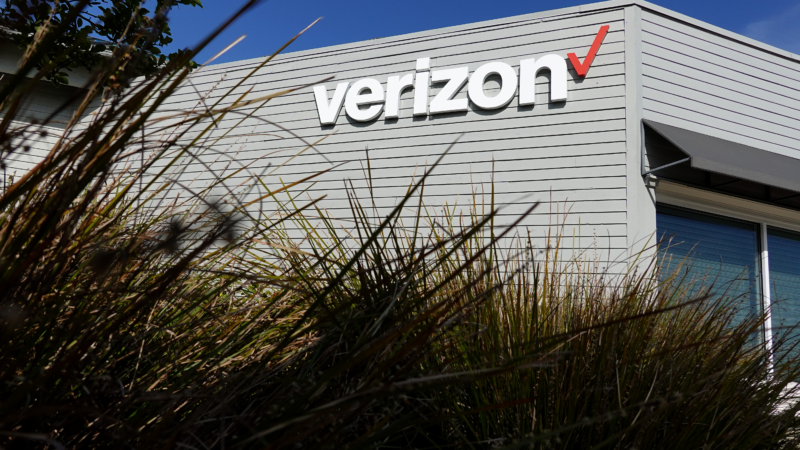Verizon ends DEI policies to get FCC’s blessing for its $20 billion Frontier deal
Verizon has become the latest big company to end policies around diversity, equity and inclusion, or “DEI,” in order to keep the U.S. government happy.
It seems to have worked: on Friday, the Federal Communications Commission approved Verizon’s $20 billion deal to buy broadband provider Frontier Communications. The FCC said that the deal will allow Verizon to upgrade the technology providing internet access to 25 states, including rural communities, and to deploy fiber-optic access to at least 1 million homes per year.
The FCC also touted the changes this deal will make to Verizon’s internal policies. In its announcement approving the deal, the FCC specifically cited Verizon’s commitment “to ending DEI-related practices.”
The approval came a day after Verizon sent a letter to the FCC, outlining how it is ending many efforts related to diversity, equity and inclusion. The telecommunications giant is removing references to DEI from its training materials and external websites; ending bonuses and goals tied to increasing the percentage of workers who are women or minorities; and dissolving its internal human resources department devoted to diversity-related policies, while reassigning those employees to general “HR talent objectives.”
“We are committed to creating a culture that leverages and values each person’s unique strengths and talents,” Verizon chief legal officer Vandana Venkatesh said in the Thursday letter to FCC Chairman Brendan Carr. (Spokespeople for Verizon did not respond to NPR’s requests for comment.)
“However, we recognize that the regulatory and policy landscape surrounding diversity, equity, and inclusion (‘DEI’) has changed,” Venkatesh added in her letter.
That’s an understatement. Five years ago, after George Floyd’s murder sparked national protests over systemic racism, corporate America rushed to promise workers and customers that it would create more equitable opportunities for people from all backgrounds — especially the minorities and women who have traditionally faced discrimination. But now, President Trump and his administration have declared war on such pledges.
Within hours of his January inauguration, Trump signed two executive orders seeking to end what he calls “illegal DEI” programs and policies in the federal government. His administration’s actions have accelerated an ongoing DEI retreat across corporate America, where some private employers are federal contractors, and thus subject to the executive orders — and others, like Verizon and rival T-Mobile, are actively seeking U.S. government approval for business dealings.
In late March, T-Mobile also told the FCC that it was ending some of its DEI-related goals and programs. A day later, the FCC approved T-Mobile’s deal to buy the fiber operator Lumos.
The FCC has taken an especially active role in the Trump administration’s campaign against diversity-related programs. Earlier this year, Carr opened investigations into Comcast, which owns NBCUniversal, and Walt Disney Co., which owns the ABC television network, over what he called concerns that they are “promoting invidious forms of DEI discrimination.”
But even many companies that aren’t regulated by the FCC, or actively seeking U.S. government approval for business deals, are quietly abandoning their DEI efforts. As NPR reported in February, many U.S. companies have now scrubbed the very word “diversity” from even their most boring public documents.
Japan’s Takaichi to pursue conservative agenda after election landslide
Japan's first female Prime Minister, Sanae Takaichi, brought the ruling Liberal Democratic Party its biggest-ever electoral victory, fueling her ambitions to pursue to a political agenda which she says could "split public opinion."
Olympic COVID restrictions are gone, but some athletes are still self-quarantining
For most people, the pandemic days of masking are behind them. In certain corners of the Winter Olympics, though, things still look a lot like they did in COVID times. Some athletes are taking extreme measures to stay healthy.
Mikaela Shiffrin has battled grief, PTSD and freak injury. Now come the Olympic Games
Shiffrin became a celebrity at 18 years old after becoming the youngest-ever skier to win Olympic slalom gold. Since then, she has faced grief, PTSD and freak injury — yet she is ready to bounce back.
As US Olympians call for tolerance and LGBTQ rights, some face Trump attacks and online hate
President Trump called U.S. Olympic skier Hunter Hess a "loser" after Hess voiced concern about political turmoil in the U.S. Gold medal U.S. figure skater Amber Glenn says she's faced online hate and threats after advocating for LGBTQ rights.
Four top U.S. speedskaters to watch at the Olympics
U.S. speed skaters set to compete in Milan are drawing comparisons to past greats like Eric Heiden, Bonnie Blair, and Apolo Ohno. Here are four to watch in the 2026 Winter Olympic Games.
Need a new path in midlife? There’s a school for that and a quiz to kickstart it
Schools across the country are offering courses and retreats for people 50+ who want to reinvent themselves and embrace lifelong learning and discovery.








